Description
Jupiter transformed into a bull by Jean-Baptiste Oudry printed on a T-Shirt
About the T-Shirt
Regular fit
Standard length, the fabric easily gives into movement
Casual wear
A classic, everyday option loved by our customers
Side-seamed
Constructed by sewing two parts together, creating a fitted look
The Unisex Staple T-Shirt feels soft and light with just the right amount of stretch. It’s comfortable and flattering for all. We can’t compliment this shirt enough–it’s one of our crowd favorites, and it’s sure to be your next favorite too!
- Solid colors are 100% Airlume combed and ring-spun cotton
- Ash color is 99% combed and ring-spun cotton, 1% polyester
- Heather colors are 52% combed and ring-spun cotton, 48% polyester
- Athletic and Black Heather are 90% combed and ring-spun cotton, 10% polyester
- Heather Prism colors are 99% combed and ring-spun cotton, 1% polyester
- Fabric weight: 4.2 oz./yd.² (142 g/m²)
- Pre-shrunk fabric
- 30 singles
- Side-seamed construction
- Tear-away label
- Shoulder-to-shoulder taping
- Blank product sourced from Nicaragua, Mexico, Honduras, or the US
Jean-Baptiste Oudry (1686-1755)
Jean-Baptiste Oudry was a French Rococo painter, engraver, and tapestry designer. He is particularly well known for his naturalistic pictures of animals and his hunt pieces depicting game.
Louis XV, king of France, often called Jean-Baptiste Oudry to Versailles to paint the royal hounds–in the king’s presence. “Monsieur Oudry had acquired such a habit of conversing with high-ranking persons and of working in their presence that he painted as calmly at the court as he would in his own studio,” marveled a contemporary. Though his father was a painter and art dealer, Oudry’s first serious training came from portrait painter Nicolas de Largillière. By about 1720, the young man was concentrating on animals, hunts, and landscapes. He became a member of the Académie de Peinture et de Sculpture in 1719 and a professor there in 1743.
From 1726 Oudry had great success designing tapestries. In 1734 he was named director of the Beauvais tapestry manufactory, which he re-established by bringing in artists like François Boucher. Two years later, he became director of the Gobelins manufactory. Supervising all tapestry production gave Oudry considerable influence on French decorative arts. He also had a large studio and was literally overwhelmed by commissions. His clients included Czar Peter the Great of Russia and the queen of Sweden. Oudry’s work was marked by attention to detail combined with freedom of execution. A master of chiaroscuro, he maintained a lifelong interest in light and reflections.

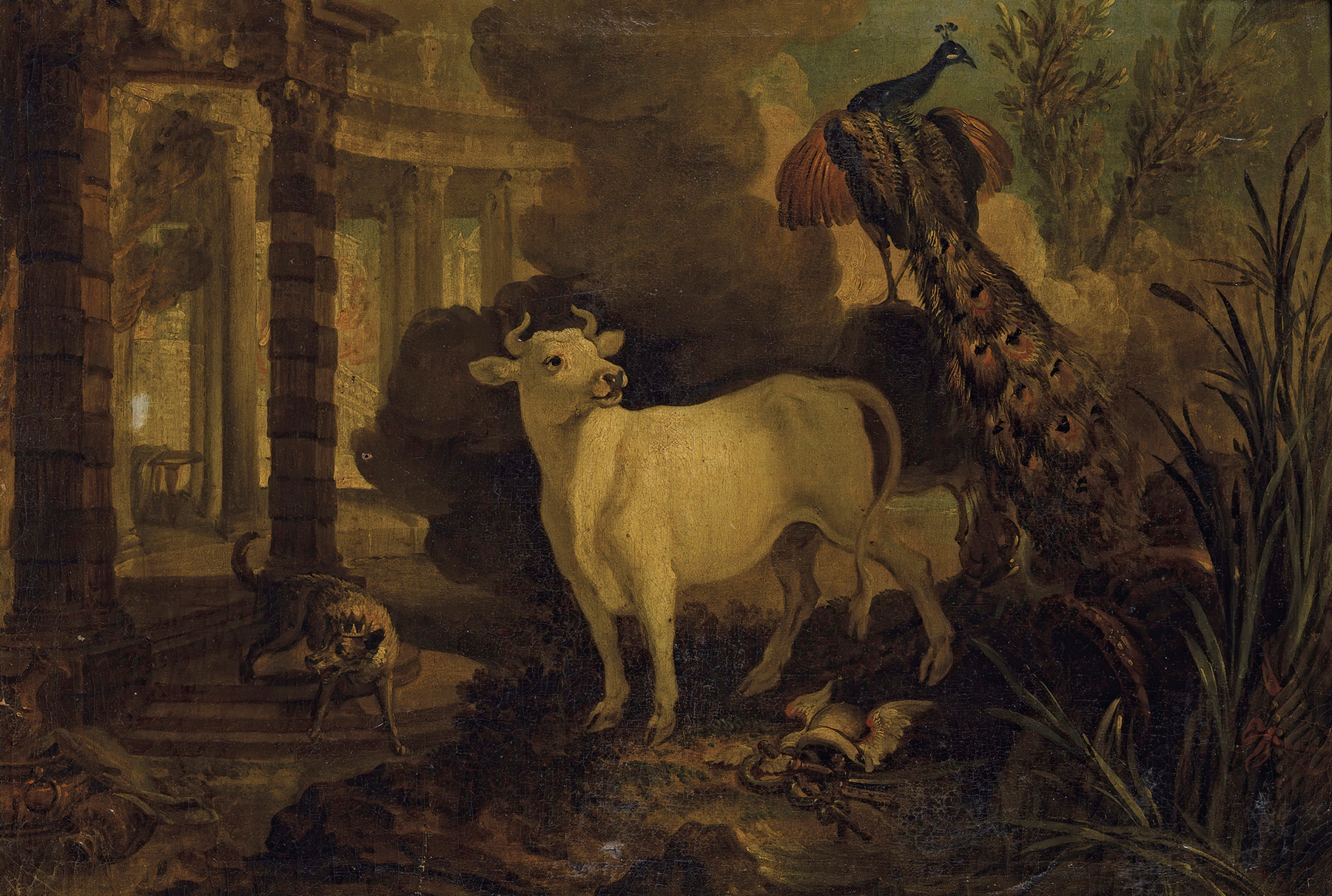
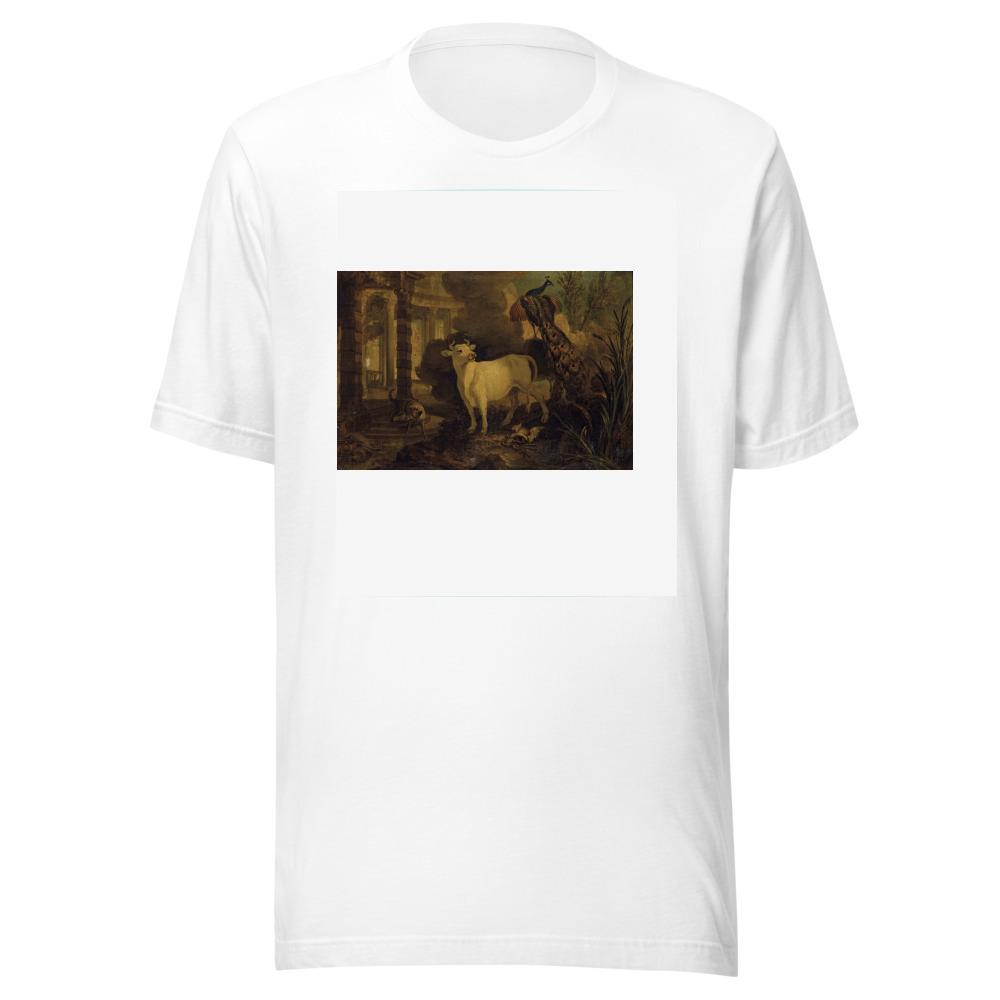
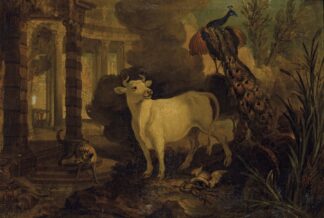
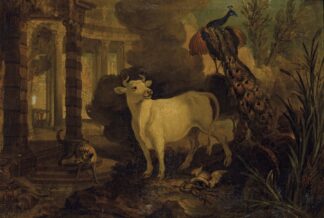
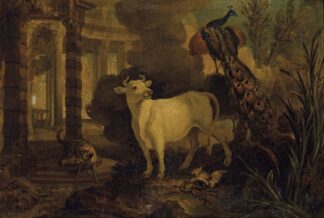
Reviews
There are no reviews yet.